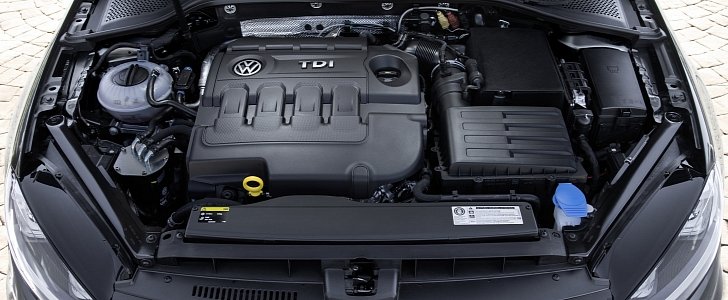For years, Europe has been the safe ground for diesel engines. They never got so big in other parts of the world - particularly North America - but over on the Old Continent they've been dominating the market for almost a decade.
It was 2009 when oil-burners overtook their gas-loving counterparts in the sales charts, and it stayed that way since then. While some people were still coming to terms with the increased vibrations and the specific rattle, low fuel consumption figures and punchy, high-torque driving characteristics won over the majority of European buyers.
The focus on carbon dioxide emissions also steered manufacturers toward diesel, since its better efficiency also meant lower quantities of CO2 would get thrown out into the atmosphere. Nobody seemed to care about all the other stuff that got spilled out alongside it, and the customers were none the wiser.
Jump to 2015, and Volkswagen's Dieselgate scandal in the U.S. managed to burst what seemed to be an invulnerable bubble. The European market was not directly involved, but VW's antics also brought into discussion the more dangerous polluting effects of diesel engines: microparticles and nitrous oxides.
The European Automobile Manufacturers Association (ACEA) has published the sales data for the first half of 2017, and they show the Europeans have woken up. Diesel cars fell from a previous 50.2 in 2016 to 46.3 percent, the first time they sunk under 50 percent since 2009.
However, don't think this is down to a spectacular growth in EV sales. The "alternative" segment - made up of hybrids (both HEV and PHEV), electric vehicles, and natural gas-powered cars - is indeed on the rise, and by 35 percent nonetheless, but it still only accounts for 5.2 percent of the market.
The future doesn't look particularly bright for diesel either. Some cities are planning to ban all cars using this type of fuel in the coming years, which is definitely something worth considering when buying a new car. You don't want to be going on holiday in Paris only to be refused access because of your vehicle.
Furthermore, talk of banning fossil fuel-powered cars is intensifying with every passing day. First, it was France. Then, the United Kingdom and Scotland. Now, China - the world's largest car market - is also flirting with the idea while California - the largest market inside the U.S. - wouldn't like to be left behind.
Diesels will not disappear that easily, but we wouldn't be surprised to see this trend continue into the next year. With electric vehicles set to explode in 2019 as a lot of manufacturers have new models planned for release, we might finally see EVs take up a more significant slice of the sales. Because dropping diesels for gasoline cars isn't really solving all the problems.
The focus on carbon dioxide emissions also steered manufacturers toward diesel, since its better efficiency also meant lower quantities of CO2 would get thrown out into the atmosphere. Nobody seemed to care about all the other stuff that got spilled out alongside it, and the customers were none the wiser.
Jump to 2015, and Volkswagen's Dieselgate scandal in the U.S. managed to burst what seemed to be an invulnerable bubble. The European market was not directly involved, but VW's antics also brought into discussion the more dangerous polluting effects of diesel engines: microparticles and nitrous oxides.
The European Automobile Manufacturers Association (ACEA) has published the sales data for the first half of 2017, and they show the Europeans have woken up. Diesel cars fell from a previous 50.2 in 2016 to 46.3 percent, the first time they sunk under 50 percent since 2009.
However, don't think this is down to a spectacular growth in EV sales. The "alternative" segment - made up of hybrids (both HEV and PHEV), electric vehicles, and natural gas-powered cars - is indeed on the rise, and by 35 percent nonetheless, but it still only accounts for 5.2 percent of the market.
The future doesn't look particularly bright for diesel either. Some cities are planning to ban all cars using this type of fuel in the coming years, which is definitely something worth considering when buying a new car. You don't want to be going on holiday in Paris only to be refused access because of your vehicle.
Furthermore, talk of banning fossil fuel-powered cars is intensifying with every passing day. First, it was France. Then, the United Kingdom and Scotland. Now, China - the world's largest car market - is also flirting with the idea while California - the largest market inside the U.S. - wouldn't like to be left behind.
Diesels will not disappear that easily, but we wouldn't be surprised to see this trend continue into the next year. With electric vehicles set to explode in 2019 as a lot of manufacturers have new models planned for release, we might finally see EVs take up a more significant slice of the sales. Because dropping diesels for gasoline cars isn't really solving all the problems.

